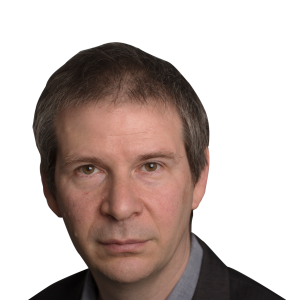Turkey’s regional ambitions evaporate along with friendships


Roula Khalaf, Editor of the FT, selects her favourite stories in this weekly newsletter.
“We do not care about being alone in the world . . . What we care about is what our people think about us.” So said Recep Tayyip Erdogan, Turkish president, as he flew back from a trip abroad.
So much for Turkey’s ambitions to be a big power.
Only three years ago. Ahmet Davutoglu, then foreign minister and now prime minister, exulted in Turkey becoming the “master, leader and servant” of a new Middle East.
But the country’s ties with allies and neighbours alike have been strained — whether over Mr Erdogan’s personalised style of diplomacy, Ankara’s support for Islamists elsewhere or the knock-on effects of a feud between Islamic factions inside Turkey itself.
Ankara has no ambassadors in Egypt, Israel or Syria. Cairo is to abandon a valuable agreement to transport Turkish trucks to markets in Africa and the Gulf. Libya said last week Turkish companies would be excluded from state contracts, once a healthy source of revenue for the Turkish construction sector. Last month Turkey closed its embassy in Yemen after telling citizens to leave.
The UN security council is one measure of Turkey’s declining international fortunes: in 2008 it was triumphant about being elected to a seat, but it failed to replicate the achievement six years later.
One of the chief sources of tension in the Middle East is Ankara’s support for Egypt’s elected-then-ousted Islamist government and for the broader Muslim Brotherhood movement, which Saudi Arabia and the United Arab Emirates denounce as a terrorist organisation.
A move towards reconciliation came this week when King Salman of Saudi Arabia greeted a visiting Mr Erdogan at Riyadh airport. But the rift on Egypt remains.
Tensions have spread across the Atlantic as well as the Gulf. Gone are the days — also in 2012 — when President Barack Obama named Mr Erdogan as one of five international leaders with whom he had “bonds of trust”.
It is not just that the state department has repeatedly expressed its concern for civil liberties in Mr Erdogan’s Turkey. James Clapper, the US intelligence chief, complained last week that Ankara had priorities other than tackling the jihadis of the Islamic State of Iraq and the Levant — although Turkey, a Nato member, subsequently sent two aircraft carrying military equipment to Iraq for its push against Isis.
A mutual embrace will protect Turkey and Europe amid extremism

Recep Tayyip Erdogan seems to think rising Islamophobia in Europe provide Turkey with its entry ticket to the EU. The president of Turkey might be right — but for the wrong reasons.
Continue reading
Mr Erdogan’s own rhetoric has become increasingly Islamist — at least in terms of pitting the Muslim world against the west. “They look like friends but they want us dead, they want to see our children dead,” he told a gathering of the Organisation for Islamic Cooperation last year.
While he prides himself on bolstering ties with Africa, here too not all is well. The president has been campaigning for other countries to crack down on schools, many in Africa, run by the movement of Fethullah Gulen, a former ally he accuses of plotting against him.
A few countries have closed Gulenist schools but several others have spoken out in their defence. Last week the African Union even announced a deal to co-operate with one of Mr Gulen’s main foundations. It shows how hard it is for the Turkish government to compete with Mr Gulen’s international network.
Turkey remains a strategically important state. Its long border with Syria makes the country an essential interlocutor for the west in the battle against Isis. Diplomats acknowledge his fiery rhetoric may primarily be intended for consumption by a pious political base.
Mr Erdogan himself appears puzzled by his country’s lack of friends. Last month, he said if Turkey appeared isolated it was because other leaders were jealous, although he did not say of what. “When Obama came to office we got along very well,” he added. “Afterwards things began to change and I don’t know why.”
daniel.dombey@ft.com
Comments